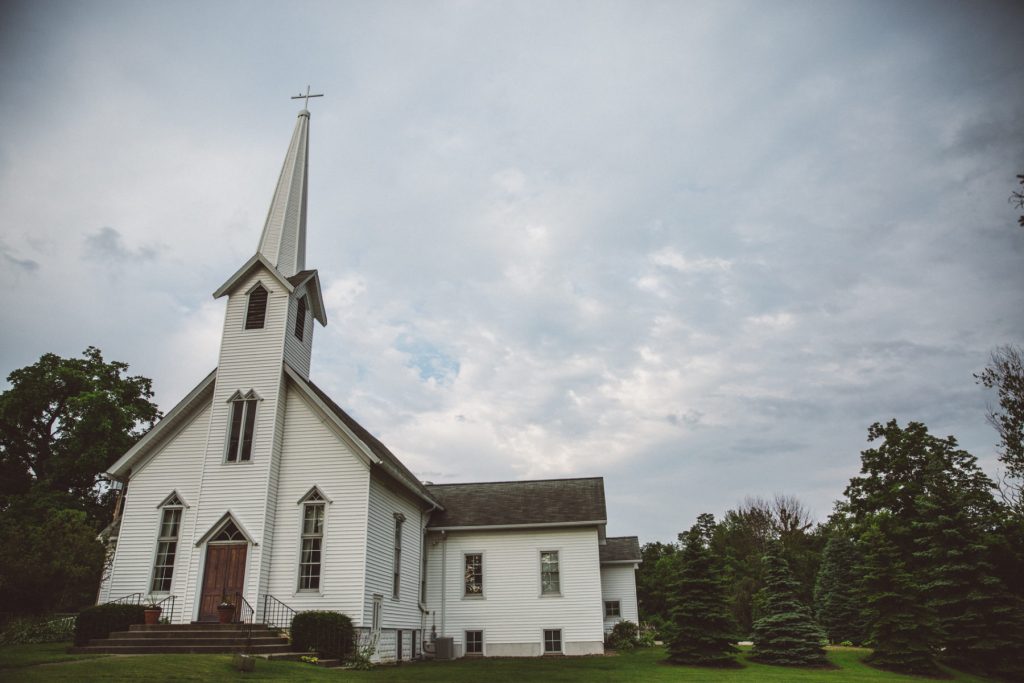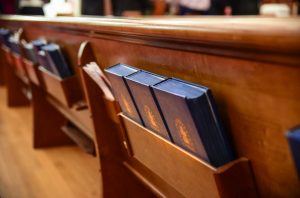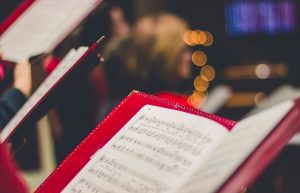Note: With my last article, I began a three-part series on the late-17th century controversy over the propriety of singing hymns within congregational worship, a debate the two principles of which were Benjamin Keach and Isaac Marlow. Part 1
The Arguments
Though Hercules Collins wrote in defense of Bejamin Keach’s position and Robert Steed followed suit on behalf of Isaac Marlow’s view, Keach and Marlow largely handled the pamphleteering. Therefore, in this section, the arguments from the central works of each, particularly Keach’s The Breach Repaired in God’s Worship and Marlow’s A Brief Discourse Concerning Singing in the Public Worship of God in the Gospel Church, will be receive primary consideration. Quotes from Keach come mostly from Breach Repaired, Marlow’s from A Brief Discourse.
Isaac Marlow and a “Mighty Man of Straw”
As Michael Haykin has pointed out, Marlow and his sympathizers advanced five main arguments, many of which were pragmatic or employed a “literalistic,” (and often ‘spiritualized) hermeneutic.
First, Marlow maintained that the use of pre-written hymns and songs produce a deadening effect of formalism within congregations similar to the reading from a prayer book, a practice which quenches the Holy Spirit. He was also convinced that examples of singing in the New Testament involved the exercise of an extraordinary special spiritual gift.
Since these gifts had ceased after the canonization of Scripture, the examples of singing found in the New Testament did not serve as a valid precedent for congregational singing. Further, Marlow insisted that congregational singing compromised the purity of the church because it well might include the hosannas of unregenerate individuals and women, the latter of which, according to 1 Corinthians 14:34 and 1 Timothy 2:11-12, are not to utter a single word in the public worship of the church. Finally, Marlow posited that public singing in the early church involved only a single voice and did not include the congregation.
The factor that perhaps made the debate even more acrimonious was the fact that both sides believed it was adhering closely to Scripture and allowing God to set the parameters of His own worship. Marlow clearly asserts the foundational principle of his worship epistemology all the while rejecting any and all congregational singing, even the Psalms of David.
“Such singing of the Psalms of David is no where instituted, ordained or practiced, either by Christ or his Holy apostles; there is no instance can be given in the New Testament that any of David’s Psalms were ever sung by any persons or churches, or that Christ or his Holy Apostles when ever they had occasion to translate any one text out of the Hebrew into the Greek Tongue, did ever turn them into Metre; and therefore finding no Institution nor Example, we have no Warrant for the Singing of them.”
But if Marlow and his allies held to the regulative principle of worship, how was it that they came to an understanding opposite of Keach? Marlow used Scripture differently than Keach in at least three fundamental ways as it applies to the regulative principle.
First, Marlow synthesized the Old and New Testaments differently than Keach. He failed to take into account their historical-redemptive significance and often spiritualized teaching on worship from the entire Bible to fit his argument. He handled the Old Testament by asserting that there was no singing instituted before David’s time. Regarding the Song of Moses in Deut 32, Marlow viewed it not as a song that was sung (and a practice to be emulated) but as merely one of the “divers manners” in which God chose to speak during Old Testament times, “divers manner” in similar vein to “Dreams, Visions, Words, Songs, and Music,” now fulfilled in God’s final word, His incarnate Son.
Marlow also held that the Psalms of David sung in temple-worship “were suitable to all the rest of the Levitical Ceremonial, and external instituted Worship of God in the Old-Testament Church” and destined to pass away. Further, Marlow correctly argued that the temple of the Solomonic period was itself merely an outer, formal ceremony, one that was “worldly” in which “carnal ordinances” were celebrated that would disappear with their fulfillment in Christ.
Marlow dismissed singing as a “carnal” and temporal ordinance, a practice that, if allowed into the congregation, would be tantamount to re-instituting the Levitical system of worship.
“…carnal Ordinances [were] a Figure for the time then present, and Pattern of Heavenly things, and [a] Shadow of good things to come; but not the very Image of the things; and were imposed on them until the time of Reformation, and change of the Priesthood, Law, Temple, and Service, or Worship of God; which things being all removed by Christ the Body and Substance of the, who hath taken off that Yoak, and delivered us from the Law, that we should serve in Newness of Spirit, and not in the Oldness of the Letter, to bring in any part of the Levitical Ceremonial Institutions into Gospel-Worship; for that is a mingling of Letter and Spirit, of Law and Gospel together.”
Literalistic Interpretation?
If the contemporary body must adopt the singing of Davidic Psalms, Marlow reasoned that the church must also use the very instruments, and only those instruments, named in the Psalter—“Cymbals, Harps, Psalteries and Trumpets”—to accompany its singing. However, Marlow dismissed the possibility of singing Psalms, saying they were fit for Levitical worship, but not Gospel worship.
Arguing from lesser to greater, Marlow concluded that if Psalms “be not fit for Gospel worship,” then “pre-composed songs and hymns” are certainly forbidden. Marlow believed that Psalms and hymns in the Old Testament to have been performed only by the Levites, a fact that left “no Ground, Pattern, or Example, for the Gospel-Church to sing together.” Christ had ordained no formality in worshiping in spirit and in truth.
The New Testament in Marlow’s view also forbade the corporate use of Psalms, hymns and spiritual songs because they were instituted neither by precept nor example. While Keach buttressed his case in favor of congregational singing with texts such as Col 3:16 and Eph 5:19-20, Marlow argued that, in each case the “admonishing one another in Psalms, hymns and spiritual songs” of which Paul writes is singing that is merely inward, inaudible and spiritual – not vocal and verbal. Marlow interpreted singing as an inward exercise of the mind and soul.
Responding to this assertion, Keach said Marlow’s views were akin to Quakerism. Further, Marlow said that just as the Levites were gifted for singing during Old Testament times, singing might be done in New Testament worship, but only by individuals who were specially gifted by the Holy Spirit for the task, not by the congregation. To Marlow’s thinking, corporate singing was clearly absent from the landscape of redemptive history.
Second, Marlow used Scripture pragmatically and inconsistently to make his case. One of Marlow’s major issues was the human composition of hymns in forms to be “imposed” on the church. To sing “pre-composed” hymns would be to use words in the worship of God not taken directly from Scripture. It would also to introduce formalism into the worship of God, an unbiblical innovation that quenched the Spirit and corrupted worship. Marlow attempted to use Keach’s distaste for prayer books and pre-written prayers to expose inconsistency in his case for congregational hymn-singing. However, Marlow demonstrated inconsistency in his own argument by affirming extemporaneous prayers while rejecting songs.
Once again, Marlow turned to his syllogism that concluded both prayer and singing to be inward spiritual exercises, “If the essence of Prayer be inwardly in the Spirit, why not Singing also?…The Apostle expresses them alike, because their essences are alike inwardly in the Soul or Spirit.” Marlow argued for the veracity of corporate prayer because Jesus gave his disciples a model prayer. However, Marlow contended that the model prayer is an example given directly by Christ and that extemporaneous prayer is acceptable in worship.
Both Marlow and Keach rejected the use of pre-written or “form prayers.” One obvious problem with Marlow’s rejection of singing words not taken directly for Scripture is that of preaching, which is, by its very nature, extemporaneous. In The Breach Repaired in God’s Worship, Keach exploited this weakness in Marlow’s case but Marlow retorted that Scripture sets forth preaching as a genuine element in the corporate worship of God because Jesus Himself engaged in it. While steadfastly rejecting corporate singing as “formalism”, Marlow approved both prayer and preaching in his answer to Keach:
“I do acknowledge and assert that we should not neglect Prayer, till we have an extraordinary Gift or Impulse of Spirit unto Prayer; but we should constantly go to God as we can, not only for Continuance of those Mercies we have, but for further supplies of our inward and outward Wants, which are the chiefest part of Prayer…a Form of preaching is not Example for a Form of Singing: if it be, why not of Prayer also? Which you deny, because there is Reason for a Form of Preaching from the Word of God, and Example of Christ himself, who read a Text, and then preached from it; though as he was not, so others are not limited to that, or any other particular Forms; yet it is lawful for them, and required of them…”
Pragmatic Concerns
Two other concerns of Marlow were somewhat more pragmatic; he feared that congregational singing would give occasion for unregenerate persons to pollute Baptist bodies with their “carnal brayings” and that it would empower women to employ their voices in church, a practice he believed strictly forbidden by Scripture. While Marlow is correct in his overall view of gender roles in the church, his application of it left something to be desired. Citing 1 Cor 14:34-35 and 1 Tim 2:11-12, Marlow equated singing with the teaching office and thus drew his conclusion that the mouths of women must be stopped from singing.
“I therefore greatly marvel that any Man should assert and admit such a practice as Womens Singing; and that any woman should presume to sing vocally in the Church of Christ, when he positively and plainly forbids them in his Word: for Singing is Teaching, Coloss. 3:16 and speaking Ephes. 5:19, both of which are plainly forbidden to Women in the Church. And besides, they are commanded to learn in silence with all subjection. And if this be not Truth, I am at a loss how to find it. And such as deny the Authority of these Scriptures to forbid Womens Singing, do of necessity destroy the Authority of the Word of God, and leave us destitute of a Rule of Worship.”
Third, Marlow, though using Scripture, contrary to the analogy of faith, often abandoned sound reasoning in his arguments, prompting Keach to lampoon his case as a “mighty man of straw you have made and set up.” For example, Marlow quoted 1 Pet 1:8 to prove that the essence of singing is in the heart, where one makes a melody that expresses “unspeakable joy,” which cannot be communicated by “Words of a tongue.”
Therefore, Marlow concludes that Peter’s words mitigate against congregational singing because
“though vocal Joy and Singing may be teaching to others, yet the Speaking to yourselves (in your own Hearts) in Psalms and Hymns, and Spiritual Songs, singing and making Melody in your hearts to the Lord, is Musick of an higher strain, surpassing all verbal and vocal Melody in the ears of God; as unspeakable joy and rejoicing full of Glory, excels that which is speakable.”
Differing approaches to Scripture
In another (unavailable) work, An Epistle to Benjamin Keach, he argues erroneously that the Greek word used in the New Testament for “hymn” simply means to articulate “common praises or thanksgiving in prayer.” Marlow argues that “when they had sung a hymn” in Matt 26:30, was mistranslated by English translators and could be more faithfully rendered “when they had given thanks.” As Keach points out, it appears Marlow resorted to even “perverse” ends in seeking to show that Scripture militates against the singing of hymns.
A final example of Marlow’s sometimes bizarre argumentation is seen in his relation of hymns to the gift of speaking in tongues. Pointing to 1 Cor 14, Marlow believed any song was like tongues. Only two or three could practice it and another would be required to interpret it. If singing could be used, it must be as tongues, requiring interpretation. If all practiced speaking in tongues—or hymn-singing—there would be no one left to interpret.
It’s an understatement to assert that Marlow’s understanding of Scripture differed significantly from that of Keach. Marlow’s biblical case against the use of Psalms, hymns and spiritual songs in corporate worship clearly struck a sour note with Keach and ultimately, to Baptists in general.





























